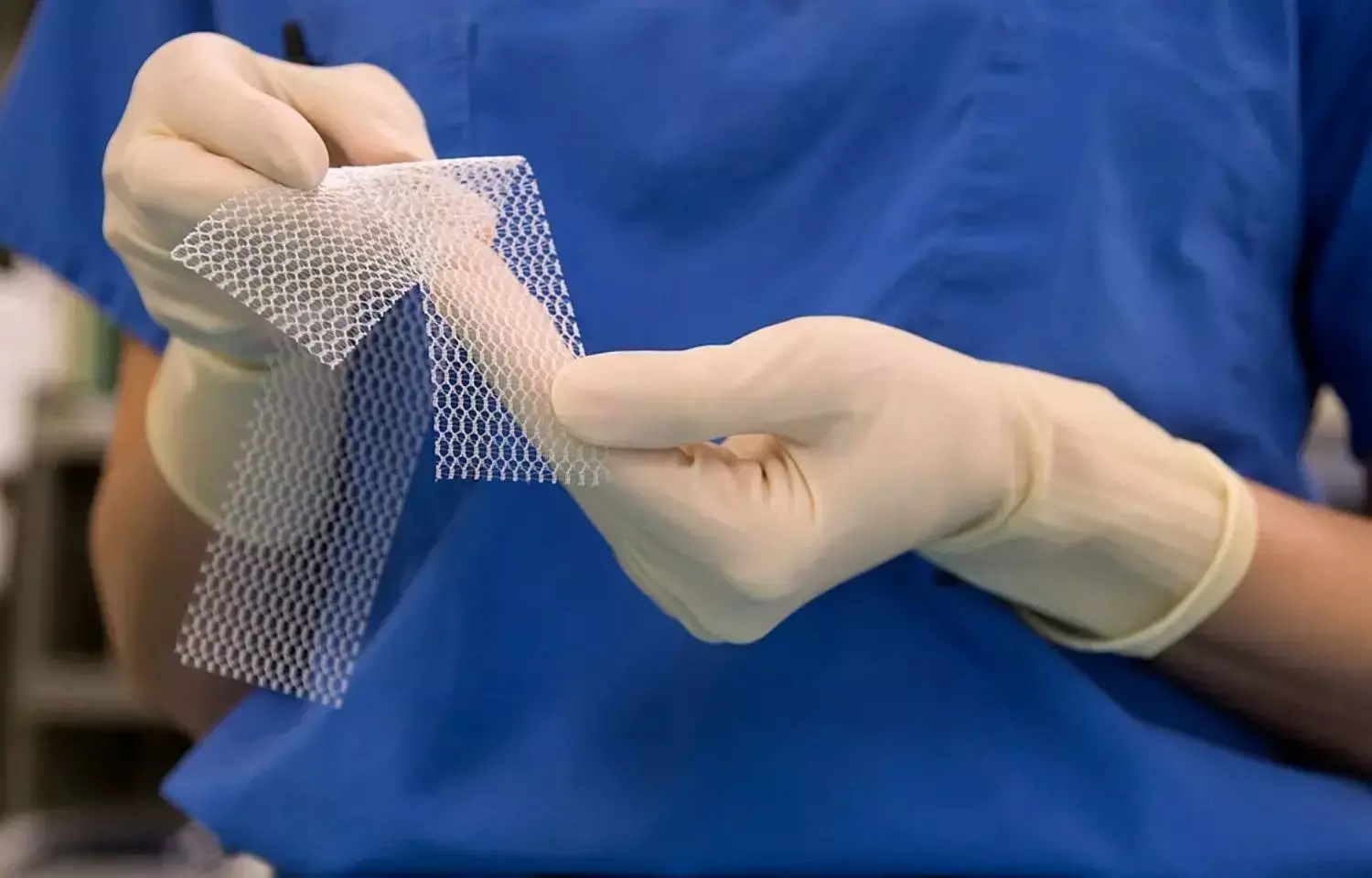- Home
- Medical news & Guidelines
- Anesthesiology
- Cardiology and CTVS
- Critical Care
- Dentistry
- Dermatology
- Diabetes and Endocrinology
- ENT
- Gastroenterology
- Medicine
- Nephrology
- Neurology
- Obstretics-Gynaecology
- Oncology
- Ophthalmology
- Orthopaedics
- Pediatrics-Neonatology
- Psychiatry
- Pulmonology
- Radiology
- Surgery
- Urology
- Laboratory Medicine
- Diet
- Nursing
- Paramedical
- Physiotherapy
- Health news
- Fact Check
- Bone Health Fact Check
- Brain Health Fact Check
- Cancer Related Fact Check
- Child Care Fact Check
- Dental and oral health fact check
- Diabetes and metabolic health fact check
- Diet and Nutrition Fact Check
- Eye and ENT Care Fact Check
- Fitness fact check
- Gut health fact check
- Heart health fact check
- Kidney health fact check
- Medical education fact check
- Men's health fact check
- Respiratory fact check
- Skin and hair care fact check
- Vaccine and Immunization fact check
- Women's health fact check
- AYUSH
- State News
- Andaman and Nicobar Islands
- Andhra Pradesh
- Arunachal Pradesh
- Assam
- Bihar
- Chandigarh
- Chattisgarh
- Dadra and Nagar Haveli
- Daman and Diu
- Delhi
- Goa
- Gujarat
- Haryana
- Himachal Pradesh
- Jammu & Kashmir
- Jharkhand
- Karnataka
- Kerala
- Ladakh
- Lakshadweep
- Madhya Pradesh
- Maharashtra
- Manipur
- Meghalaya
- Mizoram
- Nagaland
- Odisha
- Puducherry
- Punjab
- Rajasthan
- Sikkim
- Tamil Nadu
- Telangana
- Tripura
- Uttar Pradesh
- Uttrakhand
- West Bengal
- Medical Education
- Industry
Transvaginal mesh not superior to native tissue repair for treating pelvic organ prolapse: Study

USA: At 36 months, transvaginal mesh repair was not found to be superior to native tissue repair for the treatment of anterior and/or apical vaginal prolapse, according to a recent study in Obstetrics & Gynecology.
Also, an important consideration from the patient-experience perspective, subjective success was high and not statistically different between groups. Transvaginal mesh repair was equally safe as native tissue repair with regard to serious device-related and/or serious procedure-related adverse events.
The study was conducted by Bruce Kahn, FACOG, an OB/GYN at Scripps Clinic in San Diego, and colleagues with the aim to compare the safety and effectiveness of transvaginal mesh repair and native tissue repair, in response to a U.S. Food and Drug Administration (FDA) 522 study order to assess co-primary endpoints of superiority and noninferiority in a prospective, nonrandomized, parallel cohort, multi-center trial.
The trial compared transvaginal mesh with native tissue repair for the treatment of pelvic organ prolapse. The primary endpoints were composite treatment success at 36 months comprised of subjective success (vaginal bulging per the PFDI-20 [Pelvic Floor Distress Inventory]), anatomical success (defined as pelvic organ prolapse quantification [POP-Q] point Ba≤0 and/or C≤0), and retreatment measures, as well as rates of serious device-related or serious procedure-related adverse events.
Secondary endpoints included a composite outcome similar to the primary composite outcome but with anatomical success defined as POP-Q point Ba<0 and/or C<0, quality-of-life measures, mesh exposure, and mesh- and procedure-related complications.
Key findings of the study include:
- Primary endpoint composite success at 36 months was 89.3% (201/225) for transvaginal mesh and 80.2% (389/485) for native tissue repair, demonstrating noninferiority at the preset margin of 12% (propensity score-adjusted treatment difference 6.5%).
- Using the primary composite endpoint, transvaginal mesh was not superior to native tissue repair.
- Using the secondary composite endpoint, superiority of transvaginal mesh over native tissue repair was noted, with a propensity score-adjusted difference of 10.6% in favor of transvaginal mesh.
- Subjective success for both the primary and secondary endpoint was 92.4% for transvaginal mesh, 92.8% for native tissue repair, and a propensity score-adjusted difference of −4.3%.
- For the primary safety endpoint, 3.1% (7/225) of patients in the transvaginal mesh (TVM) group and 2.7% (13/485) of patients in the native tissue repair (NTR) group developed serious adverse events, demonstrating that transvaginal mesh was noninferior to native tissue repair (−0.4%).
- Overall device-related and/or procedure-related adverse event rates were 35.1% (79/225) in the TVM group and 46.4% (225/485) in the NTR group (−15.7%).
"In a prospective cohort 36-month study, transvaginal mesh was not inferior to, and was as safe as native tissue repair, for treatment of pelvic organ prolapse," wrote the authors.
Reference:
Kahn, Bruce MD; Varner, R. Edward MS, MD; Murphy, Miles MD; Sand, Peter MD; Thomas, Sherry MD, MPH; Lipetskaia, Lioudmila MD, MS; Chung, Doreen E. MD, FRCSC; Mahdy, Ayman MD, PhD; Noblett, Karen MD, MBA Transvaginal Mesh Compared With Native Tissue Repair for Pelvic Organ Prolapse, Obstetrics & Gynecology: June 2022 - Volume 139 - Issue 6 - p 975-985 doi: 10.1097/AOG.0000000000004794
Dr Kamal Kant Kohli-MBBS, DTCD- a chest specialist with more than 30 years of practice and a flair for writing clinical articles, Dr Kamal Kant Kohli joined Medical Dialogues as a Chief Editor of Medical News. Besides writing articles, as an editor, he proofreads and verifies all the medical content published on Medical Dialogues including those coming from journals, studies,medical conferences,guidelines etc. Email: drkohli@medicaldialogues.in. Contact no. 011-43720751


